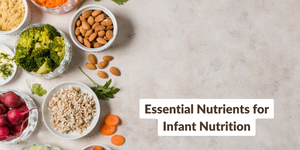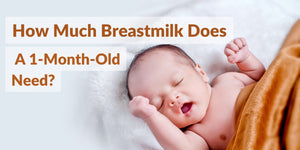From time immemorial, honey has been used across the world as food and medicine. Its sweet flavour, high nutritional value and immense health benefits have made it a staple in kitchens all over the world. Honey has been a mainstay in traditional medicine and has gained interest in modern medicine for its healing properties.
Giving your baby something natural and delicious like honey could not possibly do any harm, right? Read on to find out why you should be cautious when giving honey to your little one.
What does honey contain?
Natural honey is made by honeybees from the nectars of flowers. It is mainly composed of sugars and water and contains traces of several vitamins and minerals along with its other contents.The components of honey have many biological effects that include antioxidant, antimicrobial, antiviral, anti-parasitic, anticancer and anti-inflammatory effects.
The main chemical components of honey include:
- Sugars (glucose and fructose), which are a great source of energy. The sugars in honey are sweeter than artificial sweeteners and provide more energy.
- Proteins in minute amounts
- Minerals, such as selenium, manganese, and chromium.
- Trace amounts of vitamins B1, B2, B3, B6, C and K
- Choline (a chemical that helps in the functioning of the brain and cardiovascular system and the formation and repair of the cell membranes) and acetylcholine (a chemical that helps in the transmission of nerve impulses).
- Flavonoids that have antioxidant properties.
Along with all the health benefits, natural honey may contain some contaminants from the environment, such as bacteria. One of the most concerning contaminants is the Clostridium botulinum bacteria and its toxic spores.
Is Honey Safe and Good For Baby?
When a baby eats honey contaminated with C. botulinum spores, they reach the gut and germinate into bacteria that produce a nerve toxin. The toxin attacks the nerves and leads to an illness called infant botulism, which causes muscle weakness and paralysis.
The most important feature of infant botulism is that it generally affects babies under the age of one year. This is because babies have an immature gut - they do not produce enough acid in their stomach, have less "good" gut bacteria, and their immune system is not well developed. In older children, the mature gut moves the spores out of the body before they can cause illness.
Although rare, infant botulism can sometimes be fatal when it occurs. Some symptoms of infant botulism include constipation, poor feeding, lethargy, drooping eyes, difficulty sucking, excessive drooling, a weak cry, shallow breathing, floppiness, and progressive muscle weakness. If you have inadvertently given your baby honey, contact a paediatrician immediately.
Thus, despite being natural and full of goodness, honey is not safe for your baby before his/her first birthday. It’s also best to avoid giving your baby any foods with added sugars and sweeteners as they cause excessive weight gain.
The Right Age to Give Honey
Avoid giving honey or any foods containing honey to babies below the age of one year to prevent infant botulism. As your baby grows older, their digestive system matures, and the bacteria can no longer cause any harm. Until then, your baby can experience sweet tastes by eating other naturally sweet foods, like fruits.
When given to children older than one year, honey can boost immunity by acting as a good source of energy, minerals, and antioxidants that protect the body against some chronic diseases.
Honey, although a very delicious and nutritious food for older children and grownups, may be harmful to your baby. Avoid giving your little one honey if he/she is not yet a year old.
References:
- Van Horn NL, Street M. Infantile botulism. Infantile Botulism [2020].
- Cleveland Clinic. When is it safe to give honey to my baby? [2020].






LEAVE A COMMENT